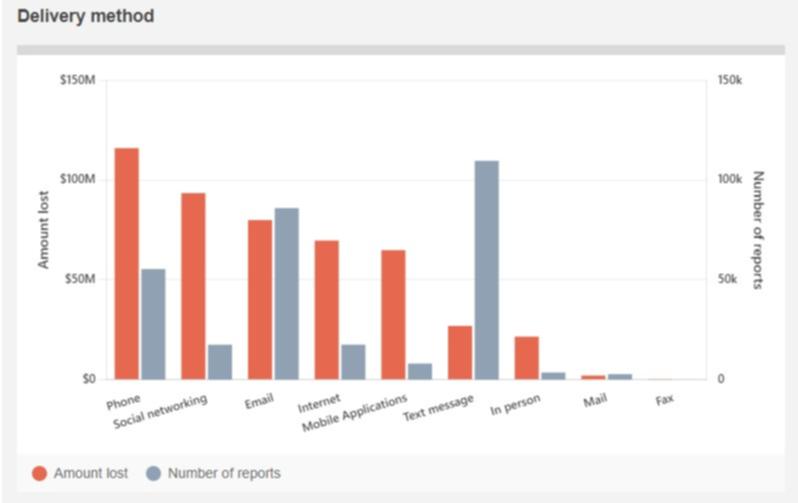LUCIO RIBEIRO: Beware the scammers as a growing threat emerges in our digital backyard
Scammers are causing over 600,000 complaints and approximately $2.7 billion in financial losses. This is how they do it.

Earlier this month, The Nightly published an opinion piece by Minister Mr. Bill Shorten, focusing on the online safety of Australians. He eloquently discussed the impact on mental health and well-being. However, I wish to highlight another critical aspect of online safety and social media: scams.
According to the latest report by the Australian Competition and Consumer Commission (ACCC), Australians lodged over 600,000 scam complaints last year, with financial losses amounting to approximately $2.7 billion.
This issue impacts everyone, yet the elderly are disproportionately affected, facing the highest losses from investment to romance scams. This age group of 65 years and older is more likely to lose money compared to other age groups.
Sign up to The Nightly's newsletters.
Get the first look at the digital newspaper, curated daily stories and breaking headlines delivered to your inbox.
By continuing you agree to our Terms and Privacy Policy.The ACCC report also points to a significant rise in scams originating on social media platforms. While losses from scams via SMS or phone calls have decreased, those via email and social media have surged. Often involving fraudulent advertisements with celebrities, fake dating profiles, or impersonations of online retailers, these scams usually end with the victim paying for goods that never arrive or investments that never happen.
In 2023 alone, Australians were tricked out of $95 million through social media scams.
Social media platforms evidently offer lucrative opportunities for scammers, given the large sums lost relative and proportional to the number of reports.

The largest categories of social networking scams include hacking, fake charities, classified scams, as well as dating, romance, and investment scams. Many of these exploit sophisticated artificial intelligence technologies to create more convincing scams. Increasingly, ‘deepfake’ videos and fake news articles featuring celebrities purportedly endorsing online investment platforms are becoming common. These platforms often claim to utilise cutting-edge technologies like AI and quantum computing to generate high returns for investors.
A scammer’s funnel
Here’s how the scam typically unfolds:
- Scammers post ads on social media, using ‘deepfake’ videos and fake news articles about celebrities claiming significant profits from online trading platforms. Another day I saw a deepfake advertising on Meta (Facebook) with Karl Stefanovic interviewing Ashleigh Barty on how she made a fortune in online investment rather than playing tennis.
- Potential victims are directed to a website where they are prompted to register.
- Post-registration, the victim receives a call from a scammer posing as an account manager, who asks for an initial investment from $200 to $500.
- Victims are urged to download a financial app for further investments.
- An online dashboard displaying minor profits lures victims into investing more. Initially, small withdrawals might be permitted to build trust.
- But when attempting to withdraw all funds, victims face demands for withdrawal fees or are informed of tax complications. Eventually, access to the account is blocked, and the money is lost.
Moreover, investigations have revealed that platforms like Meta (Facebook and Instagram) have allowed advertisements promoting such scams, including those for explicit ‘AI Girlfriends’. These ads often feature AI-generated images and violate Meta’s advertising policies against adult content. As AI pervades mainstream platforms, the spread of AI-generated pornographic content has escalated, appearing on sites like YouTube, Reddit, Twitter, Etsy, and Ebay.
While the ACCC and other organisations explore ways to combat scams, individuals can take proactive steps to educate vulnerable groups, such as the elderly and those from diverse linguistic and cultural backgrounds, on recognising, avoiding, and reporting scams. Resources like The Little Black Book of Scams from Scamwatch provide valuable information and can be accessed at Scamwatch.
In the digital age, vigilance is paramount. Awareness and education are our best defences against the sophisticated lures of today’s online scammers.
